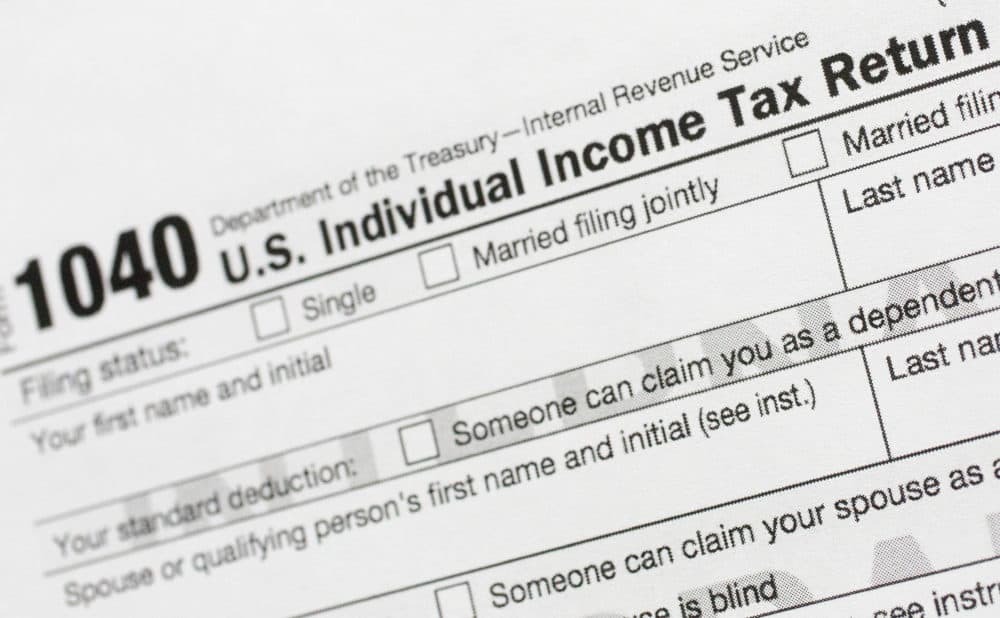I love that the main criticism is that this will cause the ultra wealthy to leave the state. That just seems like a reason to implement this nationwide rather than at the state level.
What, the people who buy elections are fleeing? Sign me up for that.
I mean, an eroding tax base is a problem. I just think the solution is to drag them kicking and screaming to pay back into the system that enabled them to become so stinking rich rather than chasing them off/eating them. The Guillotine of the first French Republic sure did feel good until the reign of terror rolled in.
Murder is always fun until you’re the one getting murdered. Doesn’t apparently sour you on the idea of murder, though.
Eat the rich and become what you despise. No thanks. I’m happy to look for that third way
If you took my comment as an endorsement of how the First republic did things, it you read it wrong.
Wow, yeah, that was a bad read lol. It’s generally received wisdom for global economics that tax disincentives push people to a point, but most of 'em will actually pay taxes if the alternative is hanging out in Bermuda forever. Nationwide rather than statewide is gonna be good enough for most
Tl;Dr basically agree
but most of 'em will actually pay taxes if the alternative is hanging out in Bermuda forever.
What if the alternative is their money hanging out in Bermuda forever while they enjoy a life of tax-reduced luxury in the countries they’re dodging taxes from?
Then you have to continually fight a lot of battles about your money and it gets complicated but sure that’s definitely a thing people also do and there are no magic bullets and all options for everything are a bit sucky - but having some of these mega-high-earners pay a bit more tax is still better than doing nothing because you’re worried they’ll take the money away, and the wider the policy of fair graduated tax is applied, the better it works
Time to put some sanctions on tax havens then
I didn’t take it that way— mine was a poorly worded agreement with you.
What’s your third way? Does shore leather taste good?
Technically the people who buy elections via Campaign Funding and Political Endorsement are almost never actually in the state they’re buying the elections of. Reminds me of The Southern Strategy, when Republicans invested heavily in the south to stoke the flames after LBJ signed the Civil Rights Act.
I remember seeing this argument about billionaires and corporations leaving the US if they are taxed fairly at a national level. If that were the case then 1. The US wouldn’t lose out on revenue it wasn’t losing out on already, and 2. The “free market” or the government would adapt to fill the abandoned niche.
And anyplace worth living already has a higher tax rate anyway.
Besides we would all be better off if people like that left. Human happiness levels off around 110k per year, on average in the US. If there really are people who would give up all the things that make normal people happy just to add a marginal amount to their net worth, do we really want them?
We have all unfortunately met someone like this. Someone who cuts the line at an all you can eat buffet. All the food you could possibly want and they are angry that someone else might possibly get slightly more of something. And that isn’t fair. Someone who has a fake job with almost no work and tries to find ways out of that even token tasks.
Let them leave.
Source on the 110k number? Because I remember reading something about 75k not that long ago and inflation couldn’t have been that bad could it?
Massachusetts was already relatively high tax, high cost of living
Examples?
Western Europe
The average US rate is 25% while the average Western Europe rate is below 20%….
They even get more out of those taxes too.
You are looking at two different tax systems. The effective US tax rate (the rate you actually pay is much much less). Our household makes $300k per year, and we have a $650k net worth. Our income taxes every year? Less than 7% of that, which is absurdly low. The ultra wealthy are taxed even less than that. The US is propped up by taxes from the middle-class because the more you makes, the easier it becomes to optimize and lower your effective tax rate. We need to tax the rich more.
Ok, now what’s the top tax bracket? We’re talking about people making >$1M/yr.
10% $0 to $11,000.
12% $11,001 to $44,725.
22% $44,726 to $95,375.
24% $95,376 to $182,100.
32% $182,101 to $231,250.
35% $231,251 to $578,125.
37% $578,126 or more.
If you make $579k, you don’t pay 37% of that. You pay the above rate for each range of dollars you earn. So everyone pays 10% on the first $11k they earn.
There’s also deductions including the standard deduction of $13,850 (so subtract that from what you earned)
Some good information: https://www.nerdwallet.com/article/taxes/federal-income-tax-brackets
They aren’t paying the highest marginal tax rates, that’s what the loopholes are for. Trusts are well known for this exact scenario.
Neither of those numbers seems accurate. It’s not the “average” rate payer who is supposedly being chased off.
California. Highest taxes in the US, yet we generate 14.2% of the country’s GDP despite being 11.7% of the population. We have an economy the size Germany (who has the world’s 4th largest economy) with 46.4% the population.
People talk shit about the state, how awful it is, etc, and while we do have many problems we’re doing pretty damn well all things considered. If we get housing and healthcare fixed (both active efforts by our government) we’ll be in an amazing position as a state.
California is weird like that. I’ve seen plenty of sentiments about California surviving standalone as its own nation.
Without doing any research, most of us assume the revenue and economy is based on key industries like tech, agriculture?
Would the states survive if it didn’t have his current water supply for agriculture?
With the Exodus of some tech companies, what is that trend look like overall? If it continues, will the state still be in the same good shape?
I’m assuming the great weather has something to do with it?
There are already places (in the U.S. and other countries entirely) with far, far lower taxes than MA. Why haven’t rich people moved already?
Yea except I’m sure our federal government would just blow it on more missles and bullets. At least here it’s doing good things like feeding kids.
Fun fact! Where do you think those missiles are designed? It’s not all universities in Boston.
It did happen to New Jersey, Norway and France. Rich people leave when you tax them. I’m not arguing against the law, but to prevent “flight of the rich”, the law has to be applied universally. Or if that can’t happen, do what Norway did, tax wealth flight.
I’ve read studies that indicate the tax flight from NJ wasn’t as bad as people made it out to be as net tax revenue still increased and that some of the migration can be attributed to factors other than the tax increase. Still, I agree a blanket tax on the rich is ideal.
It’s how you tax. Some Norwegians left because not the income but the fortune was taxed. And by fortune also the value of stocks and such. The issue for some was they needed to sell off stocks to pay the tax. Also Norway established a new tax that tax the fortune if you leave. I am ALL for taxing the wealthy, but if the money has already been taxed…
It’s already been taxed, yes, but it’s also passively generating income by investing it. You tax that income with a capital gains tax.
You can further impose a let’s say 1-2% tax on wealth above let’s say 5 million, so you only have to pay 1% on 2M if you are worth 7M.
That should be easily covered by your investing gains if you play at that level. So, in essence, no harm done to personal wealth. You just get richer less fast while urgent social and infrastructure projects receive better funding.
I mean, if the point is to stop people from stockpiling wealth and increasing wealth disparity, then it sounds pretty effective.
Even if it’s not implemented nation wide, there’s the implication that the state is losing something by these people leaving. I suspect they’re contributing little by being there though.
I mean, if they leave, that tax revenue drops, meaning the goodies you gained may have to be dropped. The concern is whether it is sustainable long term
What tax revenue drops? Before the change they weren’t paying the additional tax, and now they aren’t paying it if they leave, so nothing is lost on that account. The state loses whatever taxes they were paying originally; given that they’re annoyed enough to leave over an increase that suggests that they were already finding ways to minimize their tax payments. Thus, by them leaving, the state is likely losing a small amount of revenue. Given that each person has a cost to the state, the net effect will be even smaller.
Surely there’s a point at which taxes drive away enough people that it doesn’t work, but it’s clearly not the case for this particular implementation.
I don’t know what the tax bracket earning for this scenario is. I wonder what the difference is between the extra money a person earning a million dollars a year would be under this new tax guideline, versus the amount they were paying before. Now what’s the difference if they leave in state revenue?
Even that fear is not really supported by data, according to Cristobal Young’s The Myth of Millionaire Tax Flight.
What are you trying to show?
You didn’t have to make $1,000,000 per year to buy a $600,000 house.
That the median house price in MA is 38% higher than the median US house price, suggesting that the wealthy aren’t fucking off.
deleted by creator
I voted for this. There was a lot of outright blatant lies on the commercials against this.
I forgot it even passed until my kid started kindergarten in the fall and during registration we were told starting that year all school lunches are free.
Wow, imagine living in a functioning society… And that’s just a taste.
Holy fuck I want more
This is what you get when you curbstomp conservatives at the polls:
P R O G R E S S
If they want to leave then good riddance. If you aren’t willing to contribute to society then go live on a deserted island.
They tried this before with the Minerva Reefs. It was, in fact, not their land to take and they folded like a folding chair. Google it.
my favorite part about reading the relevant Wikipedia article is the libertarian magazine claiming the islands were “more or less reclaimed by the sea”. As if the people already there weren’t people but fish or something. For those curious: Here is the Wikipedia article
That was a good read. I am glad that Tonga was not only able to stand up for their claim of the reef, but also at one point fend off those dirtbags.
I’m an international student in MA, I remember getting SMS spam telling me to vote against it since it is aimed against retired people and veterans. Don’t ask me how
Because there’s probably a significant number of affected rich folks who are retirees, vets, or both. Though, the propane you saw insinuates that it’s the other way around - that a significant number of retirees and vets would be targeted by the new law. It’s a pretty common tactic used against dumb people who can’t tell the difference. Good on you for seeing through it.
“Think of the veterans!” is almost as ubiquitous as “think of the children!” in terms of political propaganda, and there are areas of Mass that are basically retirement communities and rich people’s summer houses (often at the same time). Convincing grandma and grandpa that the government is coming for their retirement funds is an easy way to get them to vote against their interests, and in some places they make up the majority of voters.
Fun fact, here in eastern Mass we refer to the wealthy summer folk as “snow birds” because they migrate south to Florida during the fall and migrate back north at the end of spring. There’s some very red areas of Mass because of these people, as they only care about keeping the taxes on their summer homes low and don’t care at all about the communities that their houses are in.
This appears to be a tax on regular income, but I thought that very rich people set up their finances so that their income appeared as carried interest, capital gains, etc. Are those subject to this tax?
According to this article I found, capital gains count as income for Massachusetts state taxes:
Edit: just realized the bank I linked to lol
Capital gains is always taxed at your normal bracket for holdings less than a year old and fall under special long term brackets for holdings >1 year. Those brackets are much smaller than income.
Capital gains isn’t the issue. The issue is people taking out loans against their securities or other assets at often very affordable rates (until recently). Those loans are their income, the interest on those loans are deductible and they never have to sell their assets.
As long as interest paid is lower than taxes on capital gains the behavior will never shift.
For readers who want to learn more:
https://smartasset.com/investing/buy-borrow-die-how-the-rich-avoid-taxes
I heard about it last year on a podcast. It’s apparently very common among the ultra wealthy.
The tax is on all taxable income not just regular wage income. Capital gains and carried interest are taxable income. They are subject to the tax if they make over the $1mil annually.
Capital gains are taxed less than regular wage income. Max capital gain rate is 20% while the max wage income tax rate is 37%.
About fucking time now the feds should do the other 49 states. But we all know that will never happen.
Progressive states could! Fed states, on the other hand, are still grappling with whether or not women are considered people.
Yeah, but the billionaires don’t really want to live in the shitholes. It’ll be a dilemma for them.
I’d think they’d wanna move to the shithole states that have people voting against taxing them because they would have an easier time getting them all to believe anything they say.
deleted by creator
Tax them until they wanna move to Mexico… see if they prefer paying taxes over loosing a finger 🤘. Sometimes the kid nappers send a finger. If you don’t pay they send the rest of the body in installments. But paying taxes is too burdensome I suppose.
Billionaire named finger
People out here saying “Taxachusetts” like that’s a bad thing lol!
Article says that the wealthy are “fleeing” Mass. Even if that is true, if we did this in every state then they wouldn’t have anywhere to run to. Even if they fled the United States, more power too them. If they don’t want to help fund this country then they don’t need to use its services.
Who knew that taxes aren’t the devil?
deleted by creator
Let’s see how this plays out.

what so bold about taxing people fairly to run your state better?
It is almost as if the rich were the real burden on the state…
What’s fairly?
Don’t they already pay a higher percentage? I haven’t looked at tax brackets lately.
Wouldn’t fairly be we all pay the same? Flat tax?
How’s that not fair?
If we all paid the same, but they make more money, their same percentage would be more money. Wouldn’t that be fair?
Equal proportion is not the same as fair. It’s a matter of scale. Low, middle, and even upper middle class people will actually feel the impact of, say, a 2% increase in taxes. Someone making more than a million dollars a year will not. It’ll be a simple blip on a balance sheet and their quality of life will not be affected in any way.
Cognitive dissonance is high for me on this.
I disagree and agree at the same time.
I agree that it wouldn’t make a huge difference, but I still don’t like the entitled stances of both sides.
I think there are two factors that make it make sense to me.
-
People who make oodles of money, that these taxes actually impact, generally don’t make that money by being any more productive than the rest of us. They won the birth lottery, or found the right way to exploit other people’s labour, or created artificial demand, and so on and so forth. So, they don’t really “deserve” that money. I personally agree with this, but I don’t think it’s a great argument in favour of higher wealth taxes because it’s a pretty subjective take.
-
The purpose of tax is to allow us to collectively allocate wealth to improve society as a whole. We might not all agree on how that should be allocated - some people think we should spend more on health or the military or education or social welfare - but tax is a tool that we (as a culture) have decided is a good way to make sure that we make progress in some shared direction. It’s not wrong to think that tax is wrong, but I personally believe that if we didn’t have that system, the world would go nowhere because everyone would only spend in their personal interests. Cynical, sure, but it is what it is.
With this in mind I think it makes a bit more sense. Increasing the proportion of tax paid by the 0.1% of people who have the most only marginally affects those people, but the amount of money raised which can be used on common interests has the possibility of doing far more good, for far more people. That money has the potential to be more productive if it wasn’t tied up in bonds, or gold, or Bitcoin, or etc.
Many/most western countries already use progressive tax brackets. Wealth taxes, to me, are just adjusting those to “catch up” with the modern definition of wealthy.
This is well articulated opinion. I like acknowledging that we all collectively don’t completely agree on use, but most agree in the necessity. I certainly do.
I like police, fire, roads, infrastructure, education, defense, etc. I dont mind paying taxes. Like all,.I have opinions on its allocation, as you said.
I don’t care for people automatically assuming they’re entitled to rich people’s money just because they make more than the rest of us.
I also don’t have any empathy for (wealthy) people who have accumulated that wealth in despicable ways, examples you described included.
I’ve never had a conversation with someone who makes the kind of money these proposed taxes would affect. I’d be interested in that perspective.
Completely agree that it’d be good to actually know someone megarich. I think that’s one of the biggest problems in modern society, that people don’t have enough opportunities to interact with those outside of their immediate social spheres. I think if the megarich had to interact with normal people (and vice versa) we would all understand each other much better.
I guess I do agree also that no one is entitled to a rich persons money. I guess to go back to fairness though, I find it unfair that there are people going without basic human needs in the same countries as there are people figuratively hoarding piles of gold
-
As if they generated that income from their own labour and fairly nontheless. Yeah they profited from hard work. All the hard work of people working for them
Why isn’t that fair?
You’re suggesting they didn’t do anything?
No wisdom, vision, guidence, leadership, investment, risk taking of their own money that happened to pay off?
Yeah, maybe the rich person you’re thinking of didn’t swing a mallet, but they did something at some point right?
What constitutes hard work or labor/labour?
Personally, I believe a worker is entitled to all they create. I’m not going to deny the initial investment of the company is a risk taken and getting a bussiness on its feet requires active effort. But this opportunity is not amongst the many and most business starters are already quite well off and appeals to investors for growth which requires favorability of yet more well off people. Not to mention more well of bussinesses are less affected by law with breaking the law becoming an investment eventually making anticompetitive practices prevalent.
While I do of course support personal property. Personally, I do not believe private property is justified as I believe it creates a wealth disparity and hierarchial power (Socialist here and relevant to workers being entitled to their labour). When working for a private bussiness. The owners of this bussiness get the surplus labour value of what you produce on the grounds of owning thus private property. I do not believe the existing ownership of this property is a justified income as it is a passive income independent of whether you do work or not.
If a worker is entitled to all they create, does that apply to the creator of the business? And of the surplus created as a result?
You stated I your second paragraph that you do t support the idea of claim to a business’s surplus, but why? Just because of the wealth separation between workers and owners?
Let us assume average CEO-to-worker pay ratio 70-to-1
The CEO does lots of work managing the company.
Do they work 70 times harder than their workers?
I’m not sure. How do you qualify 70 times harder?
Some arguments suggest that their stewardship allows that organization to ultimately achieve its goals and earn its profits, which could be significant.
How would you feel if you and a co-worker both closed deals, only you worked much harder and closed a deal that earned the company twice as much money? Should you both be compensated the same?
Let’s stay instead you were promoted to managing the previous group of coworkers. Now your scope of responsibility increases, stress and headaches, and management duties has increased. You are also now earning the company more money because you’re good at it. Should your pay be tied to how much you’re earning the company? Could you now make double what your subordinates make? More?
In another scenario, you are the most senior manager of an organization. Some of your senior individuals are extremely talented, tenured, and earn the company great deals of revenue because of their skills, people generally like working for them. How easily could those people be replaced, without affecting the organization’s success? How long would it take you to replace them? Would the business suffer in the mean time? Could those individuals be easily poached by another organization who pays them more? How much more? What is the overall market price for that individual’s skill set? How much education and talent versus replaceability do they have? Ultimately what are they worth?
I’m not sure. How do you qualify 70 times harder?
70 times the amount of skill or 70 times the amount of experience or 70 times the amount of physical exertion. Something.
But that’s not how they are paid. Instead, they are paid a market rate. Just like me. And the market doesn’t care how hard you work.
How would you feel if you and a co-worker both closed deals, only you worked much harder and closed a deal that earned the company twice as much money? Should you both be compensated the same?
Clearly not, but because I am paid an hourly wage I get the same amount of compensation no matter how hard I work.
Should your pay be tied to how much you’re earning the company?
Maybe, or maybe just tied to the value of my labor.
That’s not what happens. Instead I am paid a market rate i.e. they pay me as little as they can without causing me to find a different job. They do this to create profits, because all profit is literally just the revenue that’s left over after expenses. I am one of those expenses, ergo-
Ultimately what are they worth?
The market says they are worth 70 times as much as I am.
They are not.
A flat tax would likely cause even less taxes to be paid and arguably I wouldn’t consider it a fair. The lowest bracket does carry only 2.3% with the next bracket after that jumping to 7.6% of the tax. There is no argument that the rich doesn’t pay more than the overall person, the argument is that since they make more and they very easily are able to comfortably live with a higher tax bracket that they should be taxed more.
And honestly I agree with that, it’s doing nothing just sitting in a bank account I shouldn’t be helped to better the society that everyone lives including that person. Why should the person making minimum wage be expected to contribute these same percentage as someone who’s making 45- or 70 an hour after incentives, that’s just my viewpoint on it
Moving the goalpost is a bold strategy.
"Meanwhile, overall state revenue collections are falling short of expectations, despite the new money from the millionaire’s tax.
State finance analysts point to larger macroeconomic trends, like a drop-off in the purchasing of durable goods and a slowdown in hiring."
Government Intervention 101, unfortunatly. Where’s that econ graph of this exact thing?
Crazy that a millionaire tax in MA could cause this trend countrywide. Just crazy. /s
This is a well known econ effect. When you tax something, markets become less efficient
Cool. We would like less millionaires and billionaires hoarding wealth until the minimum standard of living in America isn’t homelessness and food insecurity. So why is it a bad thing to tax the hoarding of wealth?
This trickle down shit hasn’t worked in 40 years, restore the tax rates to before that started fucking up our country, give them the incentive to pay their employees rather than the government.
What’s going to happen if tax rate increases keep decreasing revenue?
The top tax rate bracket in the US was over 90% from 1944-1963. A median single income worker could own a home, have healthcare, food, and afford kids. GDP was doing just fine, I assume that’s what you mean by revenue.
The top tax rate now is 37%, and a median single income earner can sometimes afford a 1 bedroom without relying on a 2nd set of income. Can’t afford buying a home. Food scarcity is getting worse. Healthcare is fucked beyond belief. And kids are just flat out of the question.
As a country we aren’t getting our fair share of the value of our labor. Ideally the benevolent job creators would create good paying jobs, and make the middle class stop struggling. When this doesn’t happen, we need to give them an incentive. I’m not saying we should increase taxes, unless there is no other option.
What ideas besides taxes do you have to make the billionaire class give us a minimum standard of living that isn’t dystopian?
The price of rent is caused by wildly popular limits on construction of new housing.
“The top tax rate bracket in the US was over 90% from 1944-1963.”
Discussing this without mentioning the ridiculous loop holes is either ignorance or bad faith. And I don’t care for either.
The loop holes exist today too. But sure, let’s ignore that.
What do you have in mind to eliminate the disparity in wealth that plagues us, reducing the American standard of living to subsistence and poverty? I’m sure ya have one, right?
Tax rates that reduce revenue are far, far greater than any current tax rate in the US, not that rates should be set to optimize revenue. People that try to use the Laffer curve as justification for reducing taxes in the US lack both practical and theoretical understanding of taxes.

I was referring to this, not the laffer graph
So when you asked “What’s going to happen if tax rate increases keep decreasing revenue?” you were referring to something that doesn’t involve revenue? And that doesn’t have to do with income tax? In a conversation about income tax? That’s even worse.
deleted by creator
Larger macroeconomic trends means that the trends are countrywide so your point kind of completely fails.


















